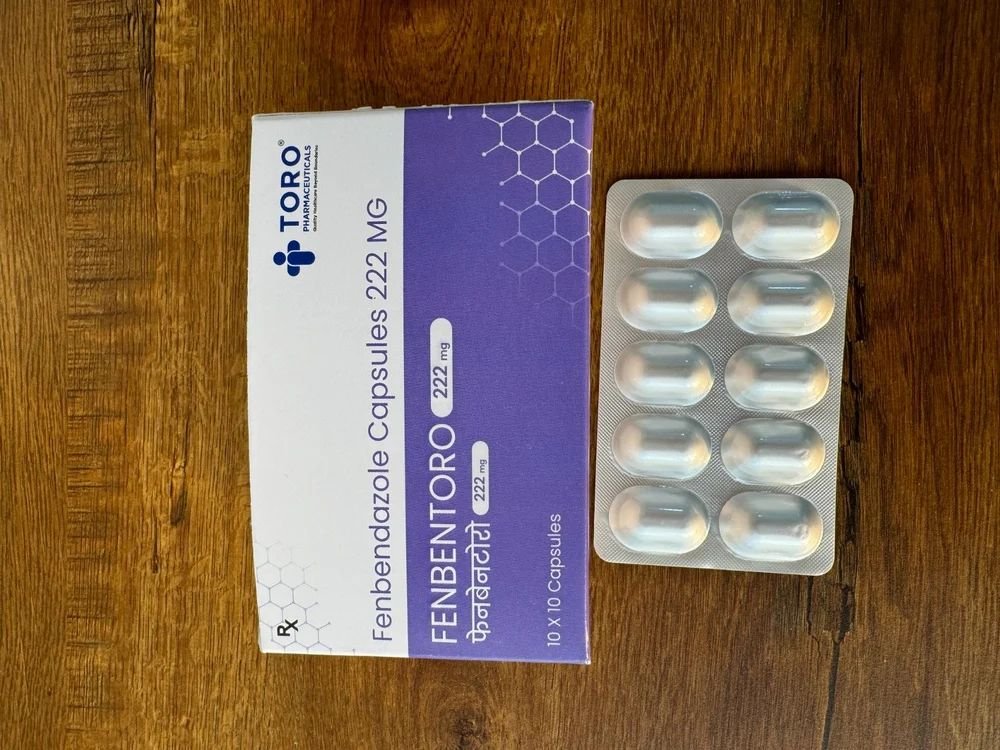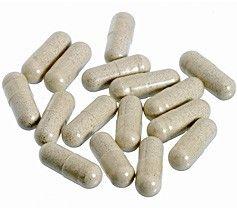All You Required to Understand About Fenbendazole and Its Uses in Pet Dog Care Solutions
Fenbendazole is a widely acknowledged anthelmintic medication in vet care. It successfully targets various gastrointestinal parasites in family pets. Recognizing its system and ideal applications is important for pet dog proprietors. This medication provides remarkable benefits but likewise requires mindful dosage and tracking. As pet treatment progresses, checking out fenbendazole's function can give understandings into keeping perfect wellness for cherished pets. What should family pet proprietors find out about its administration and security?
What Is Fenbendazole?
Fenbendazole is an anthelmintic medicine mainly utilized to deal with parasitic infections in animals. This broad-spectrum dewormer works versus a range of intestinal parasites, consisting of roundworms, hookworms, whipworms, and specific sorts of tapeworms. It is commonly used in pet dogs, felines, steeds, and livestock, making it a versatile alternative for pet proprietors and veterinarians alike. Fenbendazole is generally administered by mouth, readily available in various solutions such as granules, tablet computers, or suspensions. The drug is usually thought about risk-free, with a reduced occurrence of side impacts, although it is important for animal owners to adhere to dosage directions meticulously. By removing parasitic infections, fenbendazole assists maintain overall health and wellness and health in pet dogs, guaranteeing they continue to be active and lively. Its efficacy and safety account have actually contributed to its prevalent usage in veterinary method, establishing fenbendazole as a foundation in family pet treatment services.

Exactly How Does Fenbendazole Job?
Targeting parasites at a cellular level, fenbendazole interrupts their metabolic procedures. This anthelmintic medication mostly prevents the feature of microtubules, vital parts of the parasite's mobile structure. By binding to tubulin, a protein that develops microtubules, fenbendazole stops the assembly of these frameworks, which are vital for numerous mobile features, including transport and division. Therefore, the influenced bloodsuckers are unable to sustain their life cycle, bring about their eventual fatality.
Fenbendazole also conflicts with energy manufacturing in parasites by hindering the enzyme fumarate reductase, important for their metabolic rate. This twin activity not just impedes their ability to replicate yet additionally jeopardizes their power supply, further boosting its efficiency. On the whole, fenbendazole's targeted mechanism allows for effective control of a broad spectrum of parasitic infections, making it a beneficial device in vet medicine for the therapy of infested animals.
Typical Uses Fenbendazole in Animal Care
In the domain of vet medicine, fenbendazole is frequently used for its efficiency versus a selection of parasitic infections in pets. This broad-spectrum anthelmintic is primarily made use of to treat stomach bloodsuckers such as roundworms, hookworms, whipworms, and tapeworms. Fenbendazole is also reliable against particular protozoan infections, including giardiasis.
Veterinarians often recommend fenbendazole for regular deworming in puppies and kittens, given their susceptibility to these parasites. In addition, it is made use of in adult pets and pet cats as part of a detailed bloodsucker control program.
Fenbendazole is favored for its security account, making it suitable for use in numerous types and ages of animals. It is frequently administered in dental form, through granules or tablets, enabling simple consolidation into a pet's diet regimen. Normal use fenbendazole adds to keeping total health and wellness and wellness in animals by stopping and taking care of parasitic infections effectively.
Benefits of Fenbendazole for Animals
Fenbendazole offers substantial benefits for pets, particularly as a reliable therapy for various parasitical infections. Its safety account makes it appropriate for a variety of pets, making sure that both dogs and pet cats can take advantage of its use without substantial threat. This combination of efficacy and security settings fenbendazole as a beneficial alternative in pet dog care.
Reliable Bloodsucker Therapy
Countless animal owners seek efficient solutions for bloodsucker problems, and fenbendazole has become a reputable option. This broad-spectrum anthelmintic medication targets various inner bloodsuckers, including roundworms, hookworms, and whipworms. Fenbendazole interrupts the basal metabolism of these bloodsuckers, bring about their removal from the animal's system. Its performance is noteworthy across different species, making it a functional choice for numerous pet owners - fenbendazole capsules. Additionally, fenbendazole is commonly well-tolerated, with marginal side impacts reported, which improves its charm as a therapy alternative. Normal use fenbendazole can help keep an animal's health and convenience by preventing the problems connected with parasitic infections. In general, fenbendazole stands apart as a valuable tool in the battle versus usual bloodsuckers in animals
Safe for Numerous Animals

Dosage and Management Guidelines
When taking into consideration fenbendazole for family pets, understanding the appropriate dose is crucial for performance and safety. Recommended fenbendazole 444 dose standards differ based on the kind of pet and the details condition being treated. Additionally, various administration methods can affect the overall success of the treatment.
Recommended Dosage Guidelines
Fenbendazole is a widely used anthelmintic in veterinary medicine, establishing the proper dosage for pets is critical to ensure both efficacy and safety. The recommended dosage usually varies based on the sort of bloodsucker being treated and the pet's weight. For canines and cats, a common guideline suggests carrying out 50 mg per kilogram of body weight as soon as daily for three successive days. In some situations, a vet might recommend a longer treatment duration or change the dosage based on private health conditions. It is necessary for pet dog owners to consult a veterinarian prior to providing fenbendazole, as unacceptable dosages may lead to inefficient treatment or prospective negative effects, stressing the importance of specialist advice in pet care


Management Methods Explained
Providing fenbendazole to pets needs mindful consideration of the approach to ensure perfect absorption and effectiveness. One of the most typical management techniques consist of oral formulations, such as tablets or suspensions. Tablets must be provided whole, while suspensions should be trembled well before usage. For family pets that are hard to medicate, blending fenbendazole with a small quantity of food can boost acceptance. Dosing generally depends on the pet dog's weight and the particular problem being dealt with. It is important to adhere to veterinarian referrals closely and finish the full program of treatment, also if symptoms enhance. Monitoring for negative effects is additionally important, as adverse reactions can occur, albeit occasionally. Appropriate administration guarantees the medicine's efficiency and the pet dog's health.
Security Factors To Consider and Prospective Side Results
While fenbendazole is widely acknowledged for its performance in treating various parasitic infections in family pets, it is necessary to review the security profile and potential negative effects connected with its use. Generally, fenbendazole is considered risk-free when administered at recommended dosages, but some pet dogs may experience adverse reactions. Usual adverse effects consist of intestinal disruptions such as vomiting and diarrhea, in addition to lethargy or loss of cravings.
In uncommon cases, sensitive responses might occur, resulting in signs like swelling or trouble breathing (fenbendazole 444). It is important for pet owners to monitor their animals carefully throughout therapy and report any kind of unusual habits to a vet. Additionally, fenbendazole needs to not be utilized in animals with recognized hypersensitivity to the medication or in pregnant pets unless especially advised by a vet. Generally, educated use and vet advice can help mitigate risks related to fenbendazole treatment in pets
Frequently Asked Questions
Is Fenbendazole Safe for Expectant Pet Dogs?
The safety and security of fenbendazole for pregnant pet dogs continues to be unclear. Some research studies recommend potential dangers, while others indicate it could be safe. Consultation with a veterinarian is necessary to ensure the wellness of both the mommy and her offspring.
Can Fenbendazole Be Used for Pet cats?
Fenbendazole can be utilized for cats, mostly to deal with specific sorts of parasitic infections. It is essential for animal proprietors to speak with a veterinarian for proper dose and safety and security guidelines specific to their pet cat's health and wellness.
For How Long Does Fenbendazole Take to Function?
The moment it considers fenbendazole to work normally ranges from a few days to a week, depending on the particular problem being dealt with and the private animal's action to the drug. Constant dosing is necessary.
Exist Any kind of Interactions With Various Other Medications?
Potential communications with various other drugs ought to be meticulously considered when administering fenbendazole. Consulting a veterinarian is important to ensure risk-free mixes, as certain medications might change its efficacy or increase the risk of adverse effects in family pets.
Where Can I Acquisition Fenbendazole for Family Pets?
Fenbendazole for animals can be purchased at vet centers, pet supply shops, and online sellers. It is important to assure the item is especially formulated for animals to validate safety and performance in therapy.